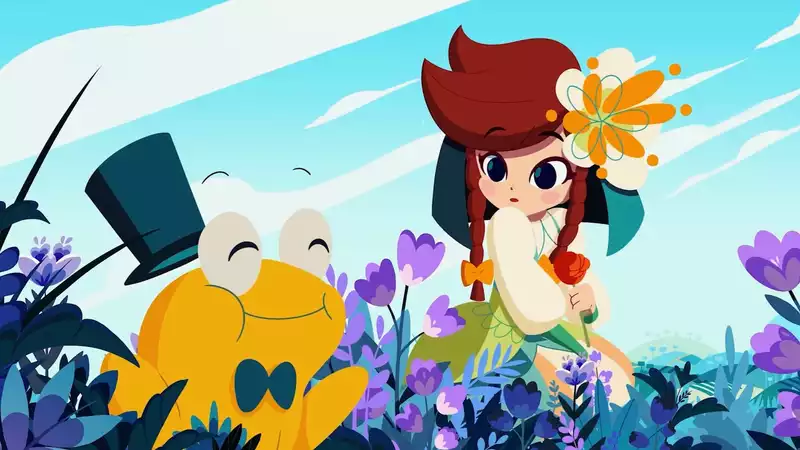The butterfly effect, the theory that changing something in the past, no matter how small, has a profound effect on the present, is a central idea in time travel stories. Chris Tales" is no exception. It seems to encourage you to change the past, present, and possible future of the fantasy world, showing you the past, present, and possible future at the same time. Yet, other than a few recurring ideas, it never fully commits to its concept.
When the orphan Chrisbel is lured to the altar of the local cathedral by a talking frog, she discovers that she is a time mage. In Crisbel's case, this means embodying an aspect of the Virgin, a religious figure. The Virgin is divided into three forms: a young girl from the past, a young woman from the present, and an old woman from the future.
When she discovers her power, Crisbel's own sense of reality is similarly divided. As she moves through the world, her perspective is centered on the present, but glimpses of the past and future can be seen on the screen, which is divided into left and right. If she passes by a guard, she might see an eager recruit or an old captain. If you pass by a child, the future perspective shows a grown child; if you look at the past, the child may not have been born yet. Towns and cities also change. On the left side of the screen a prosperous settlement may still be under construction, while on the right it may have been ravaged by war and in decline.
This is an idea that looks good, but makes little sense when moving around the world. Within a city, it is often used to discover stashes of resources that no longer exist. Once outside the walls, this system is often abandoned altogether, replaced by the ability to return obstacles to their past state for the purpose of solving simple riddles.
As for combat, this system is realized a bit more effectively. Krisbel can change the timeline of surrounding enemies on his turn, allowing those on his left to rewind to the past and those on his right to advance to the future. By doing so, he can revert the abilities of pesky insectoid monsters back to their larval stage, making their most powerful attacks unavailable, but also affecting their strategies.
For most of the game, Krisbel fights alongside Wilhelm. Wilhelm is another time mage who has honed his skills around nature. His martial prowess is scarce, so instead of wielding a sword, his most powerful ability is the use of yuccandra seeds, which resemble mandrakes. When planted, Yucandra's Seed hits all nearby enemies after a few turns. On Wilhelm's turn, he can use poison seeds. On Krisbel's turn, the poison seeds can be used to time travel the target and deal poison damage all at once, killing most enemies in a two-turn combo. If the seed is planted in the present, Krisbel can fast-forward time and have it sprout immediately, poisoning all allies in that battle. This is a multifaceted idea that initially promised much flexibility and creative approaches.
However, such an approach never really emerged. Regular enemy fights are often too short to justify such lengthy setups that rely on time-based combos. In other words, it is far more efficient to simply use standard combat techniques and spells. Boss fights are even more restrictive, either punishing you too much to spend several turns strategizing or actively limiting your use of force. One boss used a spell to control Crisbel and immediately nullified any attempts to send them back in time.
Then, as new characters are introduced, Crisbel's abilities take a further backseat. The android-like creature K, with its powerful martial abilities, can move enemies from one side of the screen to the other, helping to set up an additional AoE, but does not interact with Chris Bell at all. All of Yasu's moves have some degree of random chance, and their abilities change depending on the time of day they are used, but only slightly. Ultimately, I relied mostly on spells and attacks that paid off within a turn. I didn't want to risk the damage I might take by setting up complex combos that might not even land.
While Chris Bell's ability to manipulate the flow of time, which is central to the narrative and combat in "Cristale," is an interesting idea that works visually in a bright, engaging worldview, it is cripplingly underutilized in other parts of the game. There are not enough opportunities to play with the ability in combat encounters that are too trivial or too punishing to warrant meaningful experimentation, and in the world itself, the idea is either abandoned entirely or limited to tools for exploration and resource gathering. With its most appealing features relegated to mere extras and a story that is not rich enough to do the heavy lifting necessary to compensate, "Christeils" fails to lay a promising foundation.
.

Comments